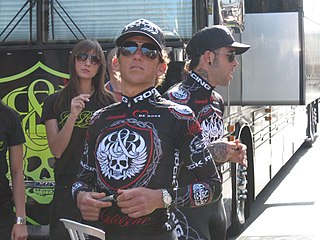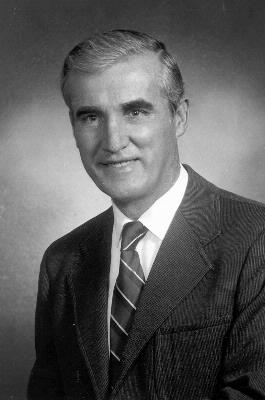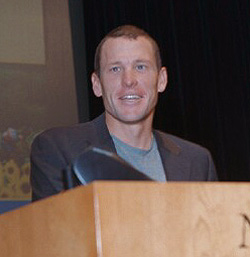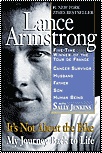
Testicular cancer is cancer that develops in the testicles, a part of the male reproductive system. Symptoms may include a lump in the testicle or swelling or pain in the scrotum. Treatment may result in infertility.

Tyler Hamilton is an American former professional road bicycle racer. He is the only American rider to win one of the five Monuments of cycling, taking Liège–Bastogne–Liège in 2003. Hamilton became a professional cyclist in 1995 with the US Postal Service cycling team. He was a teammate of Lance Armstrong during the 1999, 2000 and 2001 Tours de France, where Armstrong won the general classification. He was a key asset for Armstrong, being a very good climber as well as time-trialist. Hamilton appeared at the 2000 and 2004 Summer Olympics. In 2004, he won a gold medal at the individual time trial. The first doping test after his Olympic victory gave a positive result, but because the backup sample was frozen, no doping offence could be proven. After he failed further doping tests at the 2004 Vuelta a España, Hamilton was suspended for two years from the sport.

Ivan Basso is an Italian former professional road bicycle racer, who rode professionally between 1999 and 2015 for seven different teams. Basso, nicknamed Ivan the Terrible, was considered among the best mountain riders in the professional field in the early 21st century, and was considered one of the strongest stage race riders. He is a double winner of the Giro d'Italia, having won the race in 2006 for Team CSC and 2010 for Liquigas–Doimo.
Lawrence Einhorn is an American oncologist at Indiana University School of Medicine. A pioneer in cancer treatment research, Einhorn developed cisplatin-based chemotherapy regimens that increased cure rates while minimizing toxic side effects.

Floyd Landis is an American former professional road racing cyclist. At the 2006 Tour de France, he would have been the third non-European winner in the event's history, but was disqualified after testing positive for performance-enhancing drugs. The competition was ultimately won by Óscar Pereiro.

Bob "Bobke" Roll is an American former professional cyclist, author, and television sports commentator. He was a member of the 7-Eleven team until 1990 and competed for the Motorola team in 1991. In 1992 Roll moved to Greg LeMond's Z team and added mountain biking to his racing accomplishments. Roll continued racing mountain bikes professionally through 1998. Roll is known in the cycling world, and to his global cable television fans, as "Bobke".

Johan Bruyneel is a Belgian former professional road bicycle racer and a former directeur sportif for UCI ProTour team RadioShack–Nissan, and U.S. Postal Service, a US-based UCI ProTour cycling team. On 25 October 2018, the World Anti Doping Agency imposed a lifetime ban on Bruyneel for his role in a doping scandal that also saw Lance Armstrong stripped of his seven Tour de France titles.

Francisco "Frankie" Andreu is an American former professional cyclist whose career highlights include riding as team captain of the U.S. Postal Service cycling team in 1998, 1999 and 2000. During his career, he won a number of race stages and finished fourth in the cycling road race at the 1996 Olympics. His testimony played a key part in the United States Anti-Doping Agency's investigation of fellow U.S. Postal cyclist Lance Armstrong's doping practices.

Desmoplastic small-round-cell tumor (DSRCT) is an aggressive and rare cancer that primarily occurs as masses in the abdomen. Other areas affected may include the lymph nodes, the lining of the abdomen, diaphragm, spleen, liver, chest wall, skull, spinal cord, large intestine, small intestine, bladder, brain, lungs, testicles, ovaries, and the pelvis. Reported sites of metastatic spread include the liver, lungs, lymph nodes, brain, skull, and bones. It is characterized by the EWS-WT1 fusion protein.
Adjuvant therapy, also known as adjunct therapy, adjuvant care, or augmentation therapy, is a therapy that is given in addition to the primary or initial therapy to maximize its effectiveness. The surgeries and complex treatment regimens used in cancer therapy have led the term to be used mainly to describe adjuvant cancer treatments. An example of such adjuvant therapy is the additional treatment usually given after surgery where all detectable disease has been removed, but where there remains a statistical risk of relapse due to the presence of undetected disease. If known disease is left behind following surgery, then further treatment is not technically adjuvant.

L.A. Confidentiel: Les secrets de Lance Armstrong is a book by sports journalist Pierre Ballester and The Sunday Times sports correspondent David Walsh. The book contains circumstantial evidence of cyclist Lance Armstrong having used performance-enhancing drugs. The book has only been published in French.
Sally Jenkins is an American sports columnist and feature writer for The Washington Post, and author. She was previously a senior writer for Sports Illustrated. She has won the AP Sports Columnist of the Year Award five times, received the National Press Foundation 2017 chairman citation, and was a finalist for the 2020 Pulitzer Prize. She is the author of a dozen books. Jenkins is noted for her writing on Pat Summitt, Joe Paterno, Lance Armstrong, and the United States Center for SafeSport.
The 53rd edition of the Vuelta a España was held 5 to 27 September 1998 and began in Córdoba and ended in Madrid. The 1998 Vuelta had 22 stages over 3,774 km (2,345 mi) with the winning average speed of 40.262 km/h (25.018 mph). Spaniard Abraham Olano took the leader's jersey after the first individual time trial with 41 seconds over Frenchman Laurent Jalabert. Olano's lead in the mountains decreased each stage as teammate José María Jiménez marked Olano's rivals and took several stage wins in the process until Jiménez took the jersey from Olano on the final mountain stage to Alto de Navacerrada with Olano in third place at 38 seconds. On the following day's individual time trial, Olano took back the lead to win the only Grand Tour of his career.

Every Second Counts is a 2003 autobiography by cyclist Lance Armstrong written in collaboration with sports writer and columnist Sally Jenkins. It is a follow-up to Armstrong's It's Not About the Bike: My Journey Back to Life which was also written with Sally Jenkins. The narrative begins from after Armstrong's first Tour de France win in 1999 and continues up until his fifth win in 2003. The authenticity of the tale and Armstrong's anti-doping stance described in the work was challenged by a report from USADA in 2012, and in 2013 Armstrong confessed that he had used doping in that period.

Lance Edward Armstrong is an American former professional road racing cyclist. He achieved international fame for winning the Tour de France a record seven consecutive times from 1999 to 2005, but was stripped of his titles after an investigation into doping allegations, called the Lance Armstrong doping case, found that Armstrong used performance-enhancing drugs over his career. As a result, Armstrong is currently banned for life from all sanctioned bicycling events.

John P. Donohue was an American physician. He was the Chairman of the Urology Department and Distinguished Professor Emeritus at Indiana University School of Medicine. He pioneered treatments for testicular cancer, including the nerve-sparing technique. His work with Dr. Lawrence Einhorn led to an increase in cure rate of testicular cancer from 5% to 90%. He studied under Wyland F. Leadbetter. He began his career as a United States Navy officer while serving as the ship's surgeon aboard the aircraft carrier USS Wasp.

For much of the second phase of his career, American cyclist Lance Armstrong faced constant allegations of doping, including doping at the Tour de France and in the Lance Armstrong doping case. Armstrong vehemently denied allegations of using performance enhancing drugs for 13 years, until a confession during a broadcast interview with Oprah Winfrey in January 2013, when he finally admitted to all his cheating in sports, stating, “I view this situation as one big lie that I repeated a lot of times”.

United States Anti-Doping Agency v. Lance Armstrong, the Lance Armstrong doping case, was a major doping investigation that led to retired American road racing cyclist Lance Armstrong being stripped of his seven consecutive Tour de France titles, along with one Olympic medal, and his eventual admission to using performance-enhancing drugs. The United States Anti-Doping Agency (USADA) portrayed Armstrong as the ringleader of what it called "the most sophisticated, professionalized and successful doping program that sport has ever seen."
The 2001 Tour de Suisse was the 65th edition of the Tour de Suisse cycle race and was held from 19 June to 28 June 2001. The race started in Rust and finished in Lausanne. The race has no overall winner. Although Lance Armstrong originally won the event, he was stripped of the title due to violating anti-doping regulations. In 2012, the United States Anti-Doping Agency disqualified him from his results after 1 August 1998. The verdict was confirmed by the Union Cycliste Internationale.
The 1998 Paris–Nice was the 56th edition of the Paris–Nice cycle race and was held from 8 March to 15 March 1998. The race started in Suresnes and finished in Nice. The race was won by Frank Vandenbroucke of the Mapei team.














